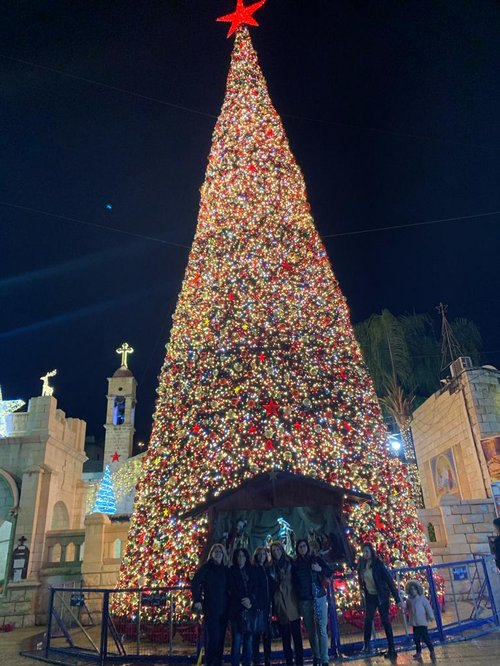Christmas in the Holy Land
Mones Farah recalls Christmas growing up in Palestine
Just over 2000 years ago a seismic event occurred. The God of heaven and earth was born in a small town called Bethlehem. And although the land of his birth had such an ebb and flow of Christian inhabitants, his birth is still celebrated among 120,000 Christian Arabs in Israel and a similar number in Palestine and Gaza.

Until recently the main focus of the Christian celebration has been families getting together just before or after attending church with a sumptuous meal on Christmas Eve and a simple Christmas tree in addition to very simple Christmas decorations.
However, since the early nineties of the last century, western influences have come in and there is much more focus on imported traditions - present giving, Christmas markets, town centre Christmas trees with a specific event to switch on the lights and of course Father Christmas (Baba Noel).
But we still hold onto the old tradition of relatives and friends calling on each other to wish each other a happy and blessed Christmas. And just as Christian families and church leaders visit their Muslim and Druze friends and leaders on their feast days, Muslim and Druze individuals and leaders visit Christians to wish them warm Christmas greetings.
Looking back at the time I lived in Nazareth, I so looked forward to Christmas and Easter as those celebration meant I would get new set of clothes, other than the yearly school uniform. My Dad is the eldest of six, so my uncles and aunties and their small families joined us on Christmas eve for a BBQ and rich food, which was mainly reserved for important celebrations. The evening then continued playing card games, backgammon, a little drinking, lots of joy and laughter late into the night.
On Christmas day, we all went to Church to celebrate the birth of Jesus, followed by friends and families that we haven’t seen the night before which was such fun, such an experience of belonging to each other and to Jesus.
Although there have been many changes, the core of Christmas celebration is still the Church celebration and gathered family. However, this year, my guess is it will be experienced differently as most Christians in the Holy Land are Palestinians, so the horrendous loss of life will have an impact and an influence on the celebrations; yes even on the remembrance of the birth of the Son of God in the land. I won’t be surprised if even the midnight celebration in the Church of the Nativity in Bethlehem will be muted and severely restricted.
After all Matthew 2:18 can also be relevant here : “A voice is heard in Ramah, weeping and great mourning, Rachel weeping for her children and refusing to be comforted, because they are no more.”.